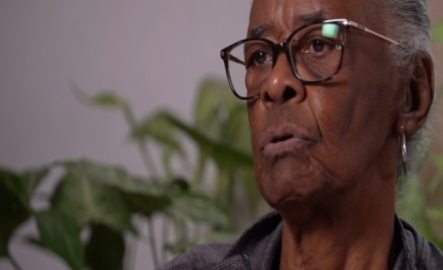Apart from being beaten into unconsciousness for attempting to enroll his daughters in an all-white school, Rev. Fred L. Shuttlesworth was bombed twice and jailed more than 35 times during his lifetime. The American minister and civil rights activist was, before his death in October 2011, the last of the civil rights movement’s “Big Three”. Shuttlesworth, along with the Rev. Martin Luther King Jr. and the Rev. Ralph David Abernathy, founded the civil rights group, the Southern Christian Leadership Conference in 1957.
He may not be a household name, but he was as important to the civil rights movement as King was, according to historians. In spite of the threats against his life and that of his family in Birmingham, which was the most segregated city in America, Shuttlesworth committed his life to fighting injustice although some civil rights leaders including King were not comfortable with the confrontational strategies he used.
History shows that Shuttlesworth may have developed his “aggressive” style from his upbringing. Born on March 18, 1922, in Montgomery County, Ala., Shuttlesworth moved to Birmingham when he was three years old to live with his mother, Alberta, and a stepfather, William, who often beat him and his eight younger siblings. Shuttlesworth and his family farmed on rented land to sustain themselves.
Shuttlesworth would graduate from high school as class valedictorian before working odd jobs including as a truck driver on an Army Air Forces base for some years. By 1944, he had joined the Baptist Church. Three years later, he began studying for the ministry at Selma University. By 1949, he was preaching at Selma’s First Baptist Church before taking over as pastor of Bethel Baptist Church in Birmingham in 1953.
What pushed him into social activism was the announcement in 1954 that the U.S. Supreme Court had outlawed school segregation in Brown vs. Board of Education. “I felt like I was a man, that I had rights,” Shuttlesworth said, recounting his reaction in a 2004 interview with the Cleveland Plain Dealer.
Becoming an activist in Birmingham, Shuttlesworth joined the voter registration efforts of the National Association for the Advancement of Colored People (NAACP) while calling for the hiring of African-American police officers. He also threw his weight behind the Montgomery bus boycott in 1955. In 1956 when the state of Alabama outlawed the NAACP, Shuttlesworth, who had had issues with the internal politics of the group, started the Alabama Christian Movement for Human Rights (ACMHR).
In December of that year, the United States Supreme Court ruled that bus segregation in Montgomery, Alabama, was illegal. Right after, Shuttlesworth announced that his ACMHR was going to test segregation laws in Birmingham. He said his plan was to flood city buses with Black people. But on Christmas night, 12 hours before executing his plan, his house was blown up by sixteen sticks of Ku Klux Klan dynamite. The blast destroyed his home. Shuttlesworth, who landed in the basement, came out of the rubble unscathed. He told neighbors, Klan members and police officers who had gathered at the scene that God saved him.
One of the officers he knew to be a member of the Klan told him to get out of town immediately. “I did not think they would go this far, Reverend. I’ll tell you what I’d do if I were you. I’d get out of town as quick as I could,” the policeman said.
Shuttlesworth replied: “Officer, you’re not me. Go back and tell your Klan brothers that if the Lord could save me through this, I am here for the duration. The war is just beginning.”
In 1957, some months after surviving the bomb attack, Shuttlesworth announced that he would enroll his daughters in an all-white school. This was in September, the month the Little Rock Nine made headlines in the U.S.
Shuttlesworth walked his daughters, Ricky and Pat, toward the all-white school, where he was beaten into unconsciousness.
“More than a dozen men with chains, brass knuckles and baseball bats were waiting for him when he drove up,” the Los Angeles Times wrote. “One of the men stabbed his wife, Ruby, in the hip. Shuttlesworth was beaten until he passed out, but he regained consciousness and managed to clamber back into the car, calmly telling the driver not to break any traffic laws as they rushed away.”
Shuttlesworth’s daughter Ruby broke her ankle when the car door slammed shut on her leg.
It was in that same year that Shuttlesworth joined with King and Abernathy to launch the Southern Christian Leadership Conference. He would also help organize the Freedom Rides while leading various demonstrations against segregation in Birmingham. During one of such demonstrations in 1963, he was hospitalized after being attacked by racist police chief Eugene “Bull” Connor’s water cannons.
Despite experiencing numerous physical attacks, Shuttlesworth remained resolute in his fight to end injustice. His mission was to “kill segregation or be killed by it.” He helped organize the historic march for voting rights from Selma to Montgomery, Alabama, in 1965 and as part of efforts to provide a source of low-income housing, he established the Shuttlesworth Housing Foundation in Cincinnati in the 1980s.
Before his death in October 2011, Shuttlesworth received the Presidential Citizens Medal, the country’s second-highest civilian award, from U.S. President Bill Clinton in 2001.
“The Rev. Fred Shuttlesworth is the last of a kind,” civil rights leader John Lewis said in a statement after Shuttleworth’s death. “When others did not have the courage to stand up, speak up and speak out, Fred Shuttlesworth put all he had on the line to end segregation in Birmingham and the state of Alabama.”










